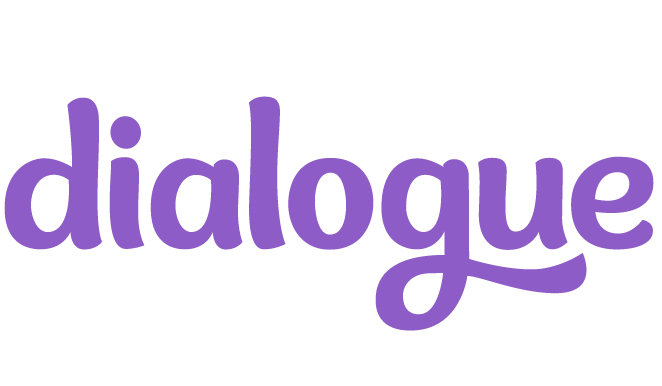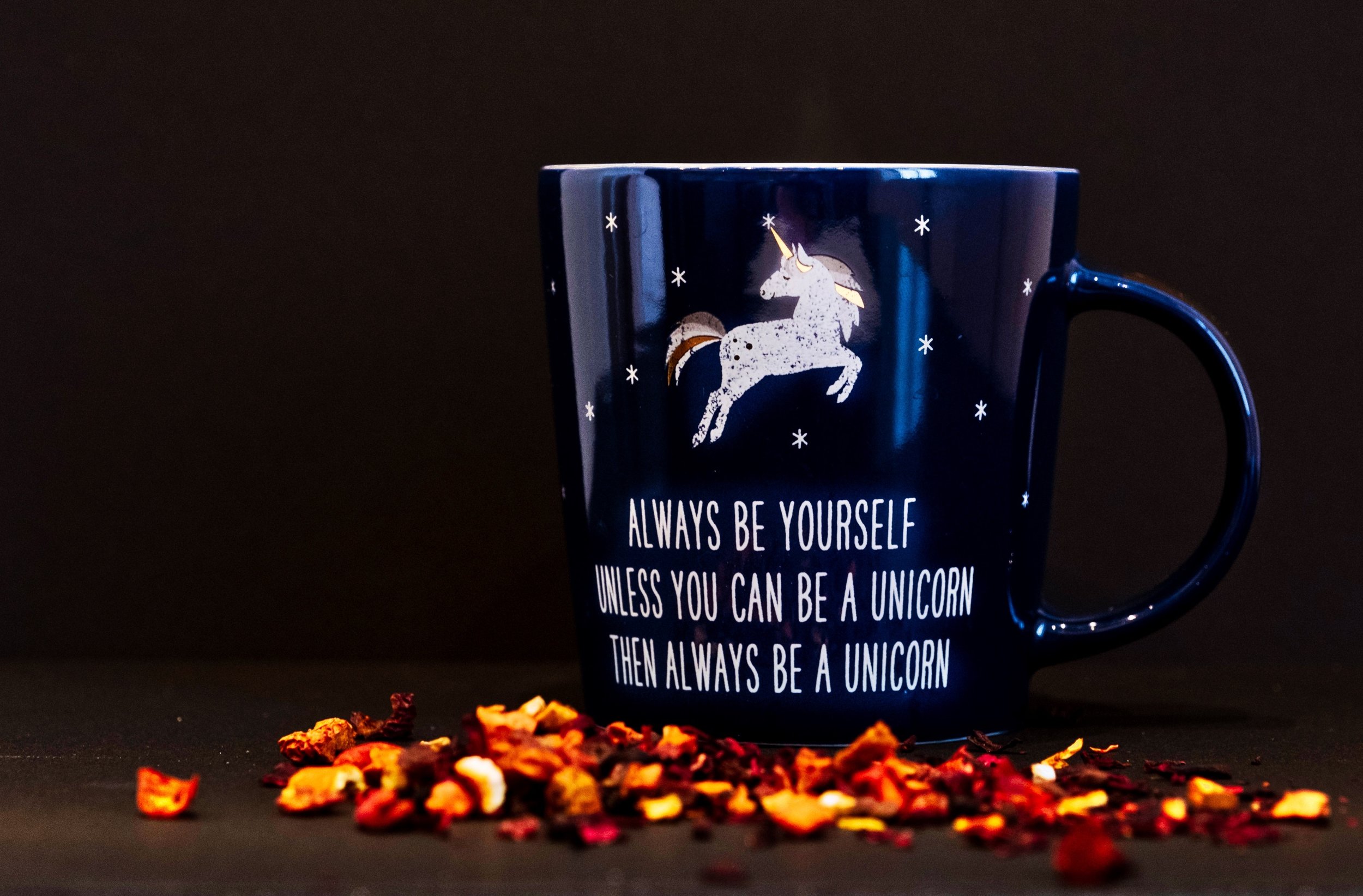How Authentic Are You? 10 Traits to Help You Get Real About Being Real
Authenticity, it's a term you hear a lot when we talk about people, brands, and even places. When something or someone is authentic you know you can trust its value. But do you ever think about how authentic you are?
I'm willing to bet you haven't received feedback on this directly. It might show up in other ways, like feeling like someone doesn't trust you. Perhaps people in your life are not meeting your expectations. You may be wondering if there's more to life, feeling unfulfilled, or dreading Mondays. Maybe you struggle with gaining clients, or selling your products. You might notice you come across as scattered or unfocused without a clear vision for your future.
Whatever the struggle looks like for you, I'm here to tell you, the "fix" you are looking for could be very simple. Not necessarily easy, but simple. Read on to find out how authenticity could be the answer to many of your problems.
Photo by Hannah Grace on Unsplash
What is Authenticity?
Psychologists Brian Goldman and Michael Kernis define authenticity as “the unimpeded operation of one's true or core self in one's daily enterprise.” Others have described it as acting in ways that reflect our values and identity.
Shame researcher, Brené Brown describes authenticity as a desirable way of being:
“Authenticity is not something we have or don't have. It's a practice — a conscious choice of how we want to live.”
I prefer Brené's more forgiving view of authenticity. After all, you and I are only human. We can try to operate authentically; but sometimes fear of judgement and shame get in the way. To think we can be 100% authentic all of the time is unrealistic and sets us up for failure.
Why Care About Authenticity?
According to Psychology research, authenticity plays a significant role in living a fulfilling and psychologically healthy life. Authenticity has been linked to positive moods, life satisfaction, personal freedom, a mindset of having influence (vs. helplessness), positive relationships, personal growth, self-acceptance, and reductions in stress and anxiety.
I truly believe all these links to be true, as I've experienced first-hand being in situations for long periods of time where there was misalignment between the behaviours that were expected of me and who I was at my core. After a while, you can experience burnout like I did.
Being authentic forces us to look at life and ourselves from the inside out. It helps us become less attached to material things or an image of what life should be like. It helps us filter what we see on mediums like Instagram and turn away from immediate, or temporary gratification. If you are being authentic, it's easier to be kind to others and yourself.
Photo by Marco Secchi on Unsplash
How Authenticity Helps You Succeed
If you are the boss, it helps you to lead other people in a way that empowers and motivates them to follow your vision. If you have a business, you will attract more clients because you have the ability to consistently articulate values to build trust. As a parent, it helps you to model the behaviour you want to see in your kids. It helps us to continuously improve our interactions with others and build trust and intimacy. This study shows that if you are an authentic partner you will be closer, have a more healthy attachment and generally more happy in your relationship. Sometimes, we even have an opportunity to help others who are going through similar struggles. You might not even know how sharing your true self is helping forge a path for others. Imagine, if we all operated authentically, what might become possible?
Photo by Dylan Siebel on Unsplash
What Makes You Authentic?
Does this mean you're only allowed to post no make-up selfies? You might think being authentic is about over-sharing, living without boundaries, privacy or fear. This is not the case. You decide how to live authentically in a way that makes you feel secure and empowered. I do believe people who consistently practice authenticty share the following qualities:
1. Vulnerability
I can't talk about vulnerability without again bringing Brené Brown into the conversation. In one of the most personally transformational books I've read, Daring Greatly, Brené Brown defines vulnerability as “uncertainty, risk and emotional exposure.”
Examples of vulnerability are launching a new business, opening yourself to criticism, or even the simple act of loving someone who might not love you back.
“When we were children, we used to think that when we were grown-up we would no longer be vulnerable. But to grow up is to accept vulnerability... To be alive is to be vulnerable.” ― Madeleine L'Engle
I love this quote as it challenges us to reframe vulnerability as something worth the risk. If you practice authenticity, you dare to move toward uncertain situations, and accept personal, or emotional risk.
2. Self Awareness
If you are authentic, you have and continue to seek clarity of your strengths, core values, beliefs, and passions plus how they fit within a broader context. For example, not only would you know what you're good at, but how you can use that strength to serve your organization or community. Most importantly, you would know the importance of accepting all parts of your identity, the good and the bad. You love yourself despite weaknesses or the opinions of others.
3. Walking the Talk
Like many of the definitions of authenticity imply, to be authentic you say what you mean, and mean what you say. Not only do you need to have awareness of who you are at your core, you consistently behave in a way that aligns to your values and beliefs. If you say you believe in equality for example, and you are in a position of power, you need to ensure you are treating others fairly. Basically, being authentic means resisting hypocrisy.
4. Courage to Stand Up
When you are crystal clear on who you are and how it benefits others- it gives you confidence to stand up for what you believe in. And when you’re clear on what your beliefs are, you feel icky when you don’t take action to have your perspective heard and considered. Over time, being silent can truly have a negative impact. So being authentic in using your voice, will make you happier in the long run.
Photo by Louis Smit on Unsplash
5. Empowerment in Life and Work
If you practice authenticity, you're focused on what is within your influence, instead of factors outside your control. You take responsibility despite being dealt a crappy hand in life, and find solutions instead of dwelling on problems or getting carried away by distractions. You are accountable, credible, dependable, and committed to finiding and living your purpose. You aren't avoiding opportunities that will challenge you and are focused on building positive solutions without being forced.
6. Seeking to Serve, not Please
We all have to make a decision of what is more important: being liked, or being real. It would be nice to have both, but I'm sorry to tell you, it's not realistic. Sometimes, in order to serve the people you are meant to serve, you have to repel or disappoint the people who don't need what you have to offer. If you truly want to serve, you have to be honest. I don't mean be disrespectful or overly critical, but put yourself in the other person's shoes and partner with them to get to a mutually desired solution. I like to reframe it this way: being a people pleaser is actually self-centred. When we are pleasing, we are thinking of ourselves. People who practice authenticity ask themselves, "how can I serve?" instead of "how can I be liked?"
7. Inclusion
If you want to be real, you also have to accept the reality that other people matter. Listening to others, being connected to different perspectives and experiences makes you more socially conscious. People who practice authenticity don’t blindly believe they are living their lives 100% true to their values. They have their eyes and ears open to allow others' realities shape their own beliefs and recalibrate to truly serve their clients, families, and/ or communities.
8. Openness
If you want to be authentic, you need to be open, honest and direct. Keeping information to yourself is not being real with those around you. Sometimes, even if you don't have answers that others are looking for, simply opening communication will help you uncover what matters most. This will not only make you better at your work, but also will be the example that will help you as a leader, parent, and responsible member of your community.
9. Learning from Experience
Being authentic means you own up to your imperfections. Not in a negative way, but in a way that gives you permission to be a life-long learner. That means you learn from your mistakes. You continue to improve based on new experiences and are open to hearing the feedback of others. You don't believe in quick fixes and focus on the long term vision. You know that the road to your vision may not be linear or predictable, and embrace this as part of the process.
10. Consistency
Considering traits 1 through 7, how consistently are you living authentically? The more consistent you are, the more authentic you become. The more consistent you are, the more you will earn trust from others because your identity and subsequent behaviour becomes clear and predictable. Like I mentioned above, being 100% authentic might be unrealistic, so find a way to gauge how often you are living the traits above to the best of your ability and set a realistic goal to aim for going forward.
Photo by Brendan Church on Unsplash
Being Authentic is Not Easy, but it Gets Easier
LB Hannahs', who identifies as a genderqueer Dad goes in depth about the discomfort of choosing authenticity over the easy route in this Ted Talk. "Authenticity doesn't mean 'comfortable.' It means managing and negotiating the discomfort of everyday life," Hannahs says.
On a smaller scale, I can relate. I notice reactions of confusion, slight amusement, and judgement when I tell people I left the corporate world to become a Life Coach. Sometimes it's easier to lead with a title of Business, Career, or Leadership Coach, since I have a decade of relevant experience and many clients who seek this type of coaching. But, if I'm being authentic, I beleive it's more effective to address the bigger picture, to find purpose, to make sure everything is in balance and operating as a synergistic system. To those who don't understand, I explain my style of coaching, the science behind it, what my clients' outcomes are, and how I am not an expert or feel I am "better at life" than anyone else (the question has been asked). Trust me, it can sometimes be uncomfortable to address the cynics; but each time I am more comfortable and articulate in responding. As a bonus, it increases the general understanding of what an ICF certified coach does and helps the industry as a whole adhere to a standard.
Conclusion
So tell me, now that you've read through the above 10 traits of what makes you authentic, how do you measure up? If I were to rate myself on a scale of 1 - 10 for each trait on the above list, I will always have a bit of work to do. But compared to where I was 5 or 10 years ago, I'm happy with my progress. And I can attribute my current life satisfaction with striving to emulate authenticity and live the life I was meant to live. I believe authenticity is what we should use as a measure of living our best life. Instead of measuring what we have or other superficial traits as an indicator for success, we should measure how consistently we are are being true to ourselves. I believe if we do this we aren't only going to be happier and fulfilled but we'll also be serving others in ways we couldn't even have imagined.
And in all things worth pursuing, it takes work and emotional (maybe even financial) risk. But, believe me when I tell you- it's worth it in the long run.
Photo by Thought Catalog on Unsplash
Now, how about you?
Think about challenges you are experiencing. How might being more authentic help you at work or in your business? How might it help you in your relationships? How might it help you be easier on yourself?
I'd love to hear what insight you gained about yourself. What else do you believe to be important in living an authentic life? Where will you go from here? Comment below and help me continue this dialogue.
Do you want to receive updates to the dia-BLOG plus a free workbook that will help you create your goals and prioritize what's important so you can achieve focus and balance? Become a Dialogue Insider and join a community of like-minded multipassionates who value community over competition.






